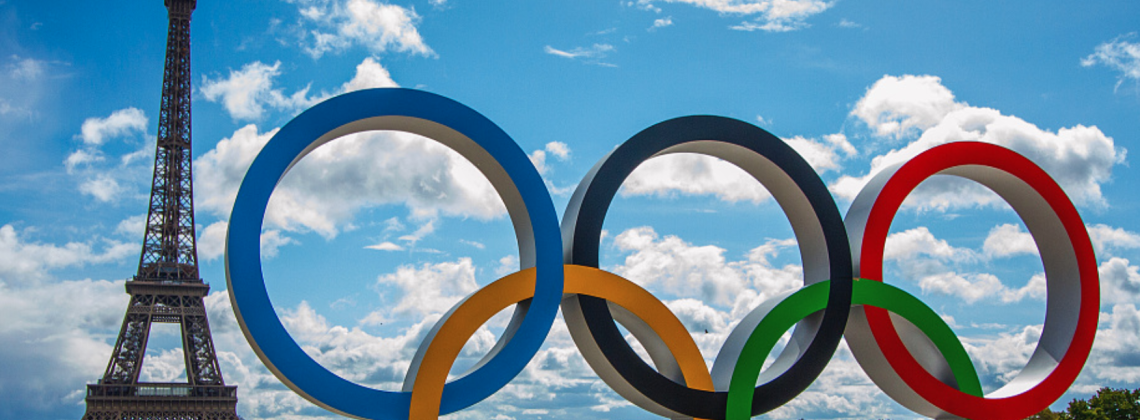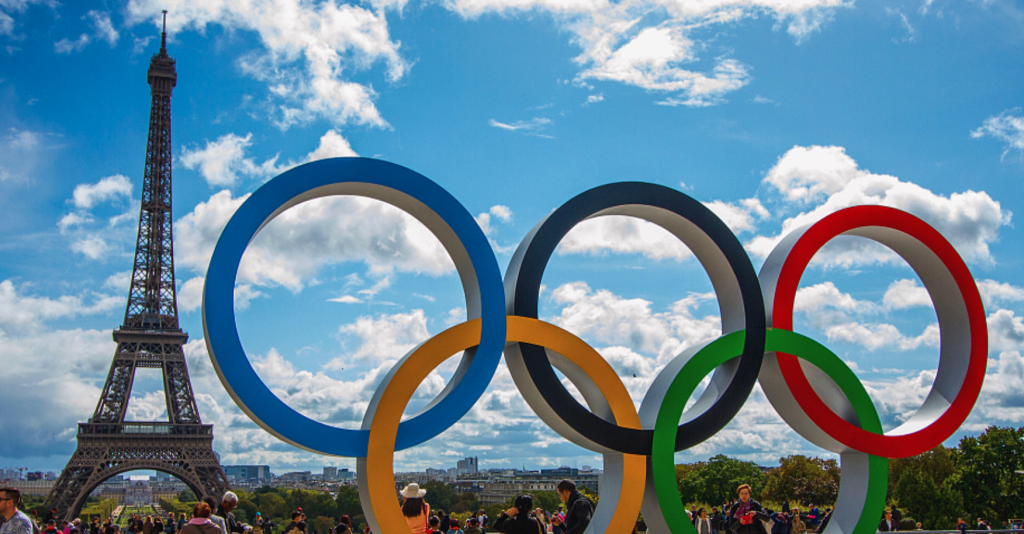

Sports aren’t an escape from the world—they’re a way into it
Just as America’s political chaos was on the verge of hitting new heights, I decided, phone off, to flip back and forth between a joyful and intense WNBA All-Star game that saw Caitlin Clark and Angel Reese working in tandem toward rookie records and Dallas Wings guard Arike Ogunbowale throw up a record-setting thirty-four points, and a Red Sox extra-innings loss to the Los Angeles Dodgers that kept my Boston-loving heart thumping loudly well after Will Smith’s walk-off single had landed.
Thank goodness, I thought to myself, basking in the afterglow of uninterrupted time I’d spent as a spectator and mere hours before President Biden announced he would be halting his re-election campaign: The Olympics are coming.
Over the past weeks, I had done much of the same. I dug into the U.S. Olympic trials, watching the women’s gymnastics team completely reconfigure itself in the wake of unexpected injuries, seeing American swimmers—as always—surpass expectations (I’m a total and unapologetic Katie Ledecky stan), and screaming myself hoarse at the wonders that are Sydney McLaughlin, Noah Lyles, and Sha-carri Richardson on the track. Sport can do this. It can offer us momentary escape from all that surrounds us, providing a seemingly simple space filled with rules, heroes, villains, winners, and losers.
We know better, of course. Sport can in no way separate itself from the context within which it takes place, embodying all that is wrong along with all that is right. When Laura Ingraham admonished LeBron James to “shut up and dribble” in reaction to his criticisms of Donald Trump, or when someone resuscitates the “stick to sports” mantra anytime an athlete wanders into subjects outside the parameters of their game, we see a failure to understand that nothing is or should be considered out of bounds when it comes to the realm of sport. The idea that sport transcends political and cultural discord is seductive, to be sure, but it fails to understand how the reality that the multitude of issues that plague the geopolitical landscape not only intersects with sport but also offers sport the opportunity to address them. When we stick to sports, we don’t just find out the score of the game. We end up learning something about everything—including the big mess that everything is.
With the Paris Olympics now upon us, sport will, indeed, offer much needed respite, bringing together competitors from around the world in celebration of athletic brilliance and shared humanity, as well as offer a window into the horde of global issues that casts shadows upon us all. While COVID-19 subsumed the (delayed) Tokyo Olympics and the Beijing Winter Olympic Games, Paris 2024 looks to be some kind of return to normal, whatever that might mean.
For Americans, deeply entrenched in a contentious and somewhat unprecedented presidential election season, Paris might offer a chance to cheer in unison. But those cheers are never simple. The dominant return of Simone Biles to gymnastics, for example, cannot erase the widespread vitriol and judgment she faced from armchair fans for her decision to step aside three years ago, citing a case of the “twisties,” a dangerous disconnect between mind and body in which an athlete loses awareness of where they are in the air, exemplified by Biles’ nearly disastrous vault at the start of Tokyo’s team competition. The vow of Paris ’24 to achieve gender parity cannot erase the fact that France bans Muslim women from wearing Hijab while competing, essentially asking them to squash and conceal identity while professing liberté, egalité, fraternité. That swimmer Adam Maraana, just twenty-years-old, will become the first Arab Israeli to represent Israel since 1976 cannot erase the ongoing conflict between Israel and Hamas, nor the persistent violence and instability that continue to saturate the Middle East. And a billion dollars or more spent on cleaning up the Seine—where triathlon and open water swimming events are scheduled to take place, as well as the Opening Ceremony—does not erase the E. Coli still living in the water but rather puts a global spotlight on it.
Yet despite all of this—and so much more, including the vast problems surrounding the very existence of the Games: their governing body, their cost, their carbon footprint—the hope that sport can serve as a unifying force remains difficult to resist. I, notwithstanding everything I know about the global operations of sport, will cheer hard every chance I get. Indeed, I’m quite good at it, whether in the bleachers or in my den. Nothing brought me more joy during the pandemic than watching Alaskan swimmer Lydia Jacoby win gold in Tokyo in the women’s 100m, knocking out favorite Lilly King while seemingly all of Seward cheered for her at a community watch party held in the local railroad terminal. And nothing made me marvel more at the fickle nature of sport than when Jacoby finished third at the U.S. trials just a few weeks ago, her ticket to Paris remaining unpunched because of—wait for it—just twenty-seven hundredths of a second.
I mean, TWENTY-SEVEN HUNDREDTHS OF A SECOND.
The Olympics make us think more than one thing at a time, something we should all be capable of and yet often rebuff. I can rejoice over the thought of Biles, arguably the greatest living athlete (and I’m only being polite here: She is the world’s greatest living athlete) taking on Brazil’s Rebeca Andrade while worrying about the traumatic legacy of abuse uncovered in the gymnastics world. I can get excited about newer events like sport climbing, breaking, surfing, and skateboarding while worrying about the impact of climate change on the dangerous temperatures that athletes often compete in. I can look forward to baseball and softball returning to the Olympic program in four years in Los Angeles while understanding the overwhelming and unfair resources some countries have over others. And I can stand in awe of whatever records will fall while knowing all too well the dangerous and illegal practices some athletes engage in to hit those new marks.
In a nutshell, the Olympics are messy, forcing us to acknowledge their many contradictions while challenging us to appreciate them for what they can tell us about our world, how we can talk about it, and—importantly—how we might think about making things better. Go team!
Amy Bass is professor of sport studies and chair of social science and communication at Manhattanville University and the author of One Goal: A Coach, a Team, and the Game That Brought a Divided Town Together and Not the Triumph but the Struggle: The 1968 Olympics and the Making of the Black Athlete, among other titles. Find her on Twitter, Threads, and IG @bassab1 or at www.amybass.net. The views expressed here are solely hers.